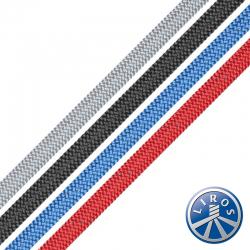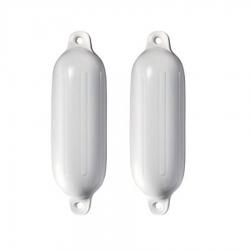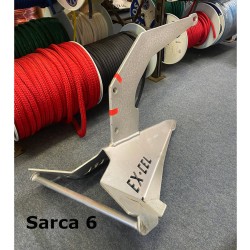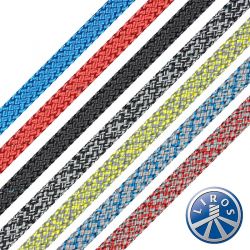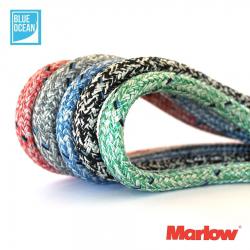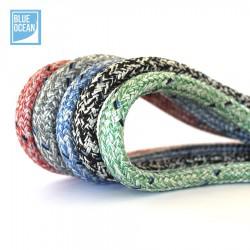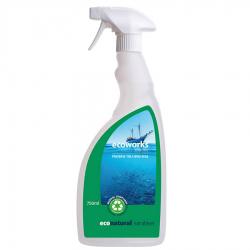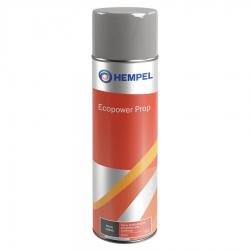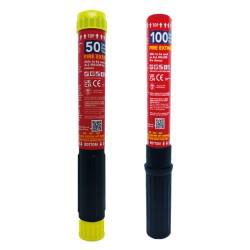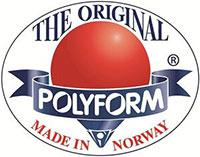There's nothing quite like setting sail on open waters to help us feel connected with nature. As we escape the urban landscape and enjoy the freedom of life aboard a yacht, it is important to do our part to safeguard our beautiful surroundings. Here at Jimmy Green Marine, we take our ecological responsibilities very seriously and practice sustainability wherever we can. The good news is that doing your part to preserve the environment is as simple as knowing where to start. Read on for our top tips for sustainable sailing.
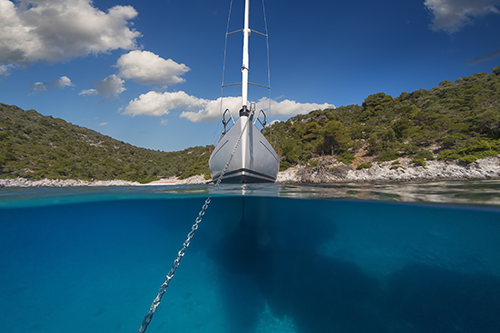
Protecting nature starts with maintenance
Before heading out into the blue, one of the easiest ways to stay in the green is simply to stay on top of boat maintenance. Sneaky leaks from your boat's hull or engine cases are prime gremlins for unleashing harm to the environment. Pleasingly, the very same repairs and maintenance to your vessel that will ensure green boating will also save you money.
A faulty propeller or leaky pipe will lead to increased fuel costs alongside elevated pollution. Slacking on your bottom paint maintenance will also dent your fuel efficiency. You can avoid transporting marine life to where it doesn't belong while minimising your impact on aquatic wildlife by choosing a bottom paint that uses biocide efficiently. This means choosing a trustworthy brand that uses smart engineering to make the most of minimal use of copper oxide in their antifouling products.
Ensuring that your bilge is always leak free and pumped out responsibly can help you to avoid dosing the ocean with a toxic load. Upgrading outboard engines can help too. Did you know that outdated outboards can waste as much as 30% of their fuel, releasing it straight into the environment? This is without doubt a cost worth considering.
Strategies for spill-proof fuelling
You might not want to hear a really scary statistic, but here goes anyway: did you know that a single pint of oil released into the water can spread into a 1-acre oil slick? That's larger than a football field! We can avoid unintentionally doing harm on this kind of scale by using an absorbent bib when filling fuel tanks, and never filling tanks more than 90% to allow for heat expansion. Keep an eye on fuel lines too for signs they might need to be replaced. If you do accidentally spill fuel overboard, or spot a slick, you can report it to your local coastguard to retain your green boating credentials.
All water is not created equal
While you may have water all around you, it is important to be mindful that not all water is sea life friendly. Blackwater from your toilet facilities and even greywater from your shower and sinks can be major polluters within a marine environment. Always use pump out facilities where they are available, get to know local laws regarding disposal of black and grey water on every trip, and if in a country where pump out is not available, always discharge far from shore and in deep water where the impact will be reduced.
Another time when water is likely to run off a yachts deck is when cleaning is afoot. We all want to keep our vessels spic and span, but it's important to remember that some cleaning products are downright dangerous to aquatic life. The simple solution is to choose non-toxic and marine friendly cleaners from our Eco-Friendly products section.
Greening up power and propulsion
Aside from taking care over fuel use, there are more things we can do to shrink our carbon footprint whilst sailing. One fundamental choice is to raise the sails rather than use the motor whenever possible. Another is switching to biodiesel, which burns much more cleanly, when compared with its conventional counterpart. Finally, we can take great care to extend the lifespan of onboard batteries, including using a trickle charger out of season, and consider the addition of solar or wind power to our battery charging arsenal.
Do no harm when anchoring and on the move
Learning how to anchor for minimal local impact is an effective way to protect coral reefs, shellfish beds, and seagrass. Choosing spots where you can drop anchor in sand or mud will avoid damage to underwater ecosystems and taking tide changes into account when choosing anchorage depths will help to avoid accidental groundings.
When your vessel is moving, be cautious to avoid leaving environmentally harmful prop scars by steering clear of shallow waters where the seabed will be vulnerable to contact. If you are lucky enough to encounter some of the larger wildlife that calls the water its home, don't forget to keep a respectful distance, and avoid trapping animals between yourself and other boats or shorelines. They will appreciate your sustainable sailing practices too.
More great ways to reduce your environmental yachting impact
With these big fundamentals ticked off your green boating check list, there are more areas where easy improvements can be made. Purchasing sheets, halyards, and control lines that are made from recycled materials is a great place to start. Choosing marine friendly sunscreens can also make a difference. Reducing disposable plastic onboard and ensuring that none of it ends up in the ocean is also vital. Did you know that an estimated 8 million tons of plastic enters our oceans every year? You certainly don't want to contribute to that.
Jimmy Green Marine is here to assist you in your efforts to pursue sailing in a sustainable way. Learn more about our own endeavours in the name of green boating by reading our Environmental Mission Statement and check out our Eco-Friendly Products selection to kickstart your marine-friendly transition.
Main Menu
Main Menu
Back
Main Menu
Back
Main Menu
Back
Back
Main Menu
Back
Main Menu
Back
Back
Main Menu
Back
Main Menu
Main Menu
Back
Main Menu
Back
Back
Back
Back
Back
Back
Back
Back







